Former Nasdaq Vice President David Weild: Digital Securities is the historic intersection of blockchain and finance
Recently, Security Token Academy (hereinafter referred to as STA), a well-known research institution in the field of digital securities, interviewed David Weild, former vice president of Nasdaq and current chief executive of Weild & Co.. As a veteran of the traditional financial and digital securities industry, David Weild has an in-depth understanding of the relationship between digital securities and traditional finance in today's world, as well as the important role of citation in securities issuance and trading. In the interview, he also shared the figures. The actual use cases of securities applied to specific asset classes in the real world.
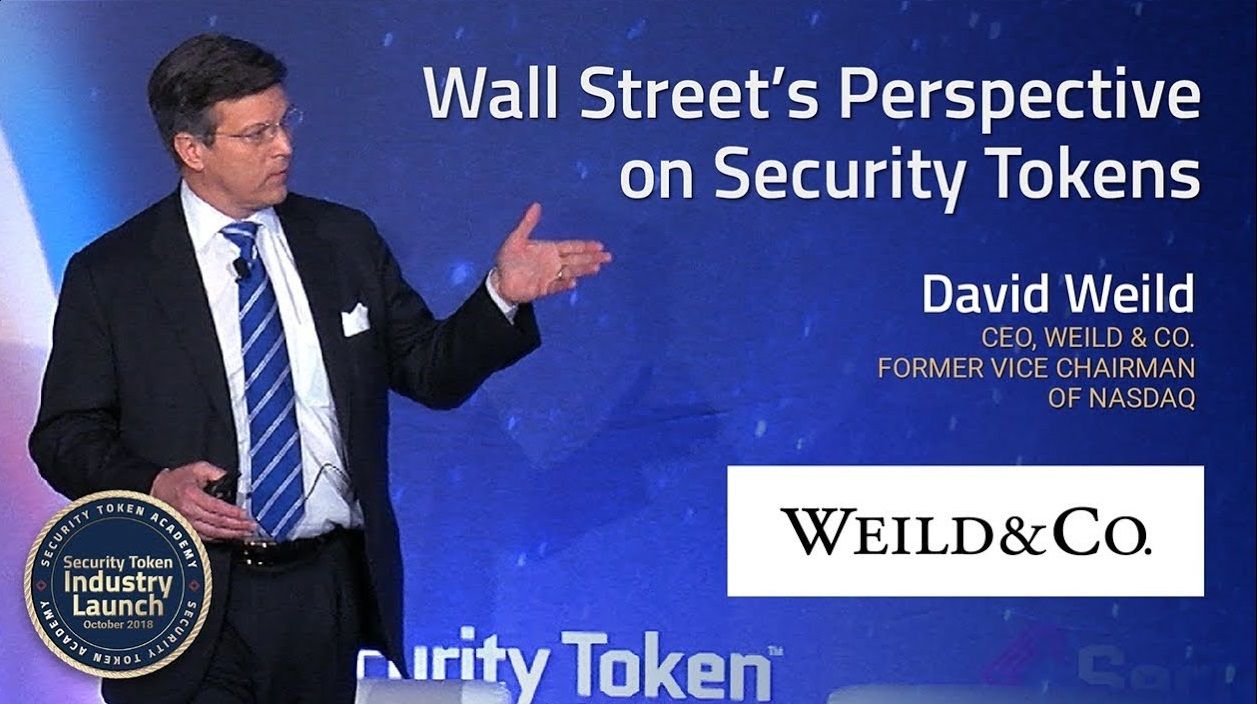
David Weild has been responsible for Wall Street investment banking and equity capital markets for many years and served as Executive Vice President of NASDAQ in the late 1990s and early 2000s. During this period, David Weild has been calling for a change in IPO rules and a rebuilding of the IPO market for small companies. It is also known as the "father of JOBS ACT" and continues to promote legislation that supports economic growth. The Jobs Act covers a comprehensive system, including simplification of IPO issuance procedures for identified emerging growth companies, reduction of issuance costs and information disclosure obligations; reform of the registration exemption mechanism in private equity, small-scale, crowdfunding, etc., to increase the convenience of issuance; Become a threshold for public companies. The industry generally believes that the Jobs Act is escorting equity-based crowdfunding in crowdfunding.
STA: Before delving into the field of digital securities, let's start with some basic understanding. How do you think digital securities should adapt to today's financial world?
- Analysis of the second batch of blockchain service filing list: The public security network supervision department on-site verification of half of the declared project was rejected
- Directly at Libra Hearing: Zuckerberg clarifies the strategic significance of Libra
- Characters | From the founder of Hyperledger to the creation of a safe $7.5 billion financial technology empire, "pragmatic" thinker Lu Yifan
David Weild: Digital securities can eliminate the cost of most securities issuance and trading. At present, the various costs of securities may be prohibitively high, and reducing the issuance and transaction costs can significantly increase the frequency of securities distribution. Closed-end bond funds come in two forms, one is distributed on a quarterly basis, and the other is distributed on a monthly basis. Monthly distribution is actually a 4%-5% premium over quarterly distribution of bond funds. In the future, if these assets are certified, they can be distributed weekly or even daily, and the issuance and transaction costs can be significantly reduced.
STA: Why is digital securities a better way than traditional securities? What are the advantages of digital securities in the real world?
David Weild: Compared to traditional securities, digital securities can be placed directly into online wallets rather than in traditional securities accounts held by brokers. In some markets, many application layers can be closely linked to the pass. For example, smart contracts can automate all legal and compliance checks in the private market, complete securities transactions in the private market, and eliminate many intermediate costs and barriers to blocking securities transfers. So from the application level, it has a great improvement in convenience and efficiency, which will be the scene adopted by digital securities in the early days.
If applied to other asset classes, digital securities reduce the cost of asset certification or securitization. Digital securities can be used to certify a particular real estate. It allows investors to combine real estate that they want to invest in, such as storage facilities, homes, and office buildings, rather than buying a basket of unselectable real estate investment trusts. Real estate assets, which will comprehensively improve the efficiency of capital allocation in the overall real estate market. As a result, digital securities will create a more liberal, open, and equitable trading environment for certain types of asset classes.
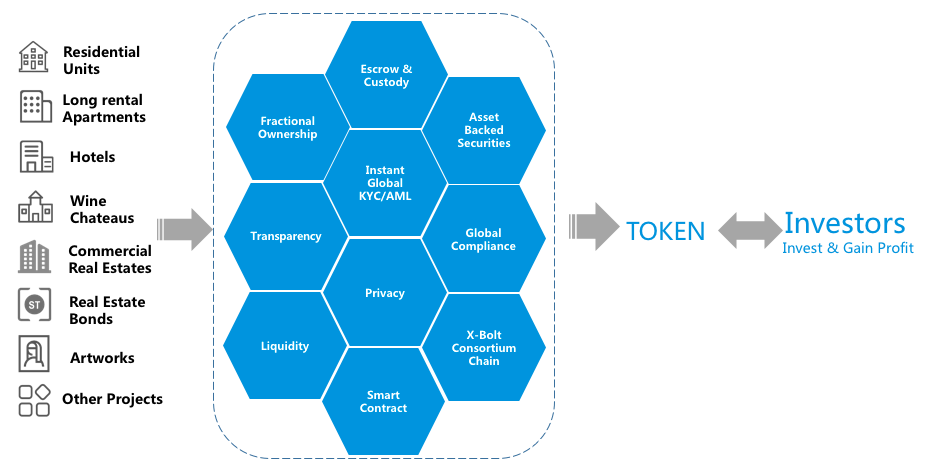
STA: For most investors, the ability to own digital securities still seems to be far away. At what stage is digital securities currently in development?
David Weild: In the past few years, there was a best-selling book called “Crossing the Divide.” From the five-stage model described, digital securities are still in the early adopter stage.
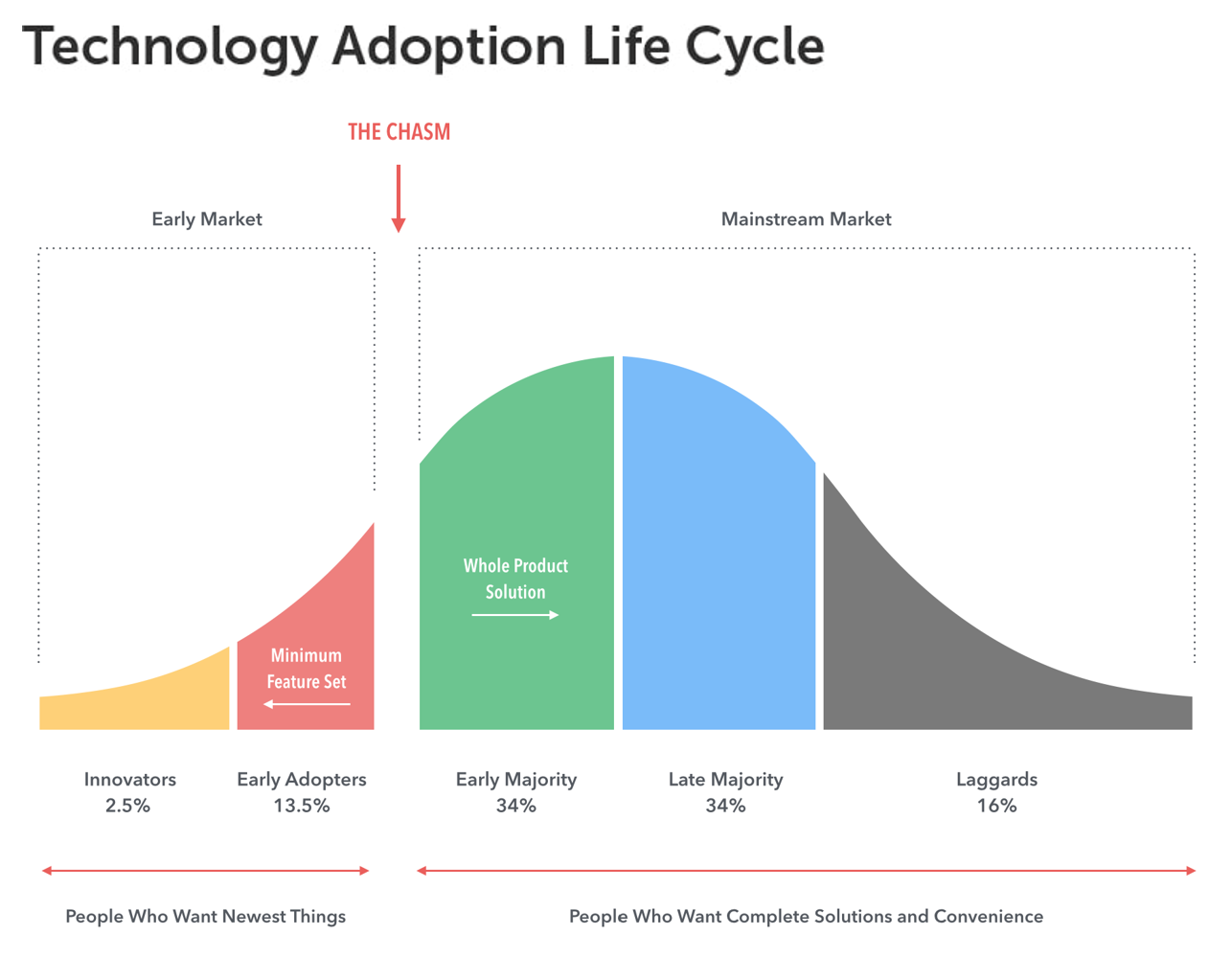
The first stage is the Innovators. They understand technology, are interested in exploring new technologies, think about the possibilities of new technologies, and even implement a demo based on some papers or news reports.
The second stage is the Early Adopters. They may not know the technology, but they are farsighted and dreamers. They will think about the subversiveness brought about by new technologies, integrate with their existing resources, and imagine the enormous power that can erupt. It is the market's advocate.
The third stage is the Early Majority. They are also concerned about new technologies, but more pragmatic than early adopters. They don't want to just buy a demo, imagine its power, and then don't produce any real value. What they want is something that really has value.
The fourth stage is Late Majority. Compared with the early public, they will wait for new technology products to become standards, so that they do not need to bear any risks, and the old products that have been used now have significantly weakened the support in the market.
The fifth stage is the Laggards. They don't have any interest in new technologies, and in the end, they are unconscious and use them.
At present, digital securities are in the second and third stages. There is a “gap” between the early market and the mainstream market. Whether it can successfully cross the gap and enter the mainstream market, and successfully win the support of pragmatists, Determined the success or failure of digital securities. In fact, every new technology will experience a gap. The key is to adopt appropriate strategies to make the company successfully cross the gap.
Many people, especially older people, are skeptical about the pass, and the Securities and Exchange Commission has encountered some practical problems that securities issuers need to address now, including custody issues and the need for transfer agents. In particular, those institutions that act as trustees are often just as onlookers until they are confident that the hosted solutions are standards-compliant and will pass the market's proven testability before they invest in the field.
However, some strategic investment groups on Wall Street have been investing in blockchain technologies, such as Morgan Stanley and Goldman Sachs, because they have a clear understanding of the advantages of blockchain technology and pay close attention to this technology. What features can be used to reduce the cost of the back office, including the securities trading field.
STA: In the past year, we have seen a lot of news reports about the Securities and Exchange Commission's regulation of digital securities. I believe that many issuers may choose to issue digital securities, but they don't know much about the areas they want to get involved with. What should they know before the issuer decides to use digital securities?
David Weild: When the issuer decides to use digital securities, it must face up to the fact that digital securities belong to securities, and don't try to ignore this fact. The issuer may choose to place a private placement, subject to the two rules of Reg D, 506(b). 506(b) may not use the means of solicitation or advertising to promote securities, and 506(c) from the Jobs Act may widely publicize the placement. However, in both cases, the issuer can only place the pass to qualified investors, and these passes cannot be traded immediately. Qualified investors must have extensive trading experience for a considerable period of time.
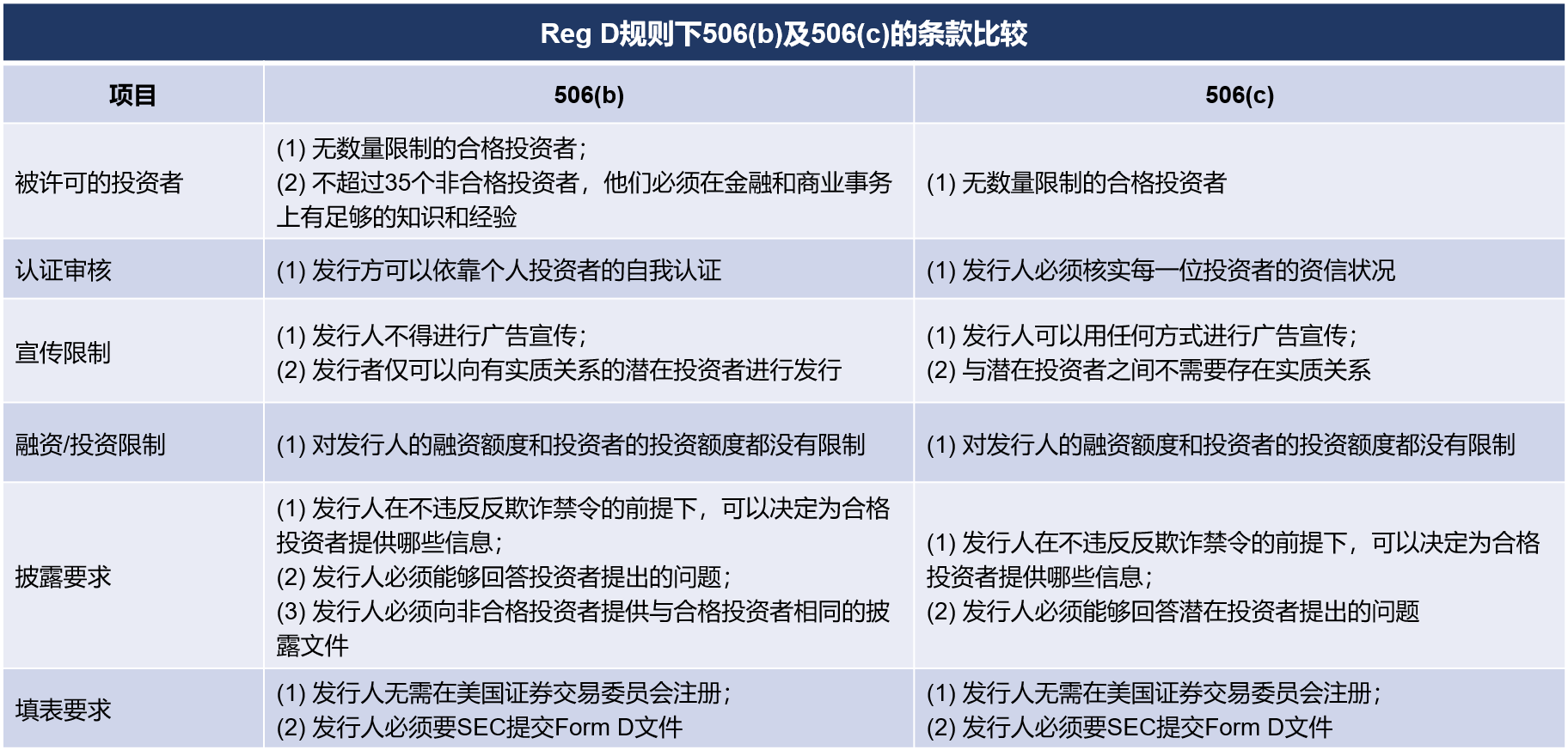
In addition, the issuer can also choose to register and issue a certificate at the Securities and Exchange Commission (SEC). Domestic issuers can apply for an initial public offering (IPO), that is, apply for S-1. If it is a foreign issuer, they need to apply for F- 1. The SEC is very serious and cautious before allowing the technology to enter the market, unless they can be sure that they can fully protect the interests of investors, which means checking all matters related to custody, regulation and licensing.
STA: Now that we know what digital securities are and why people choose to use it, can you explain how this will be applied to the open market?
David Weild: In the early days of the securities industry, all securities issuances were conducted in the form of physical stocks, after which the way investors traded securities became electronic. From the original physical stock to the electronic trading of today, the securities industry has experienced a long period of time, and from the traditional electronic trading to the future of issuing and trading, it still needs a long transition period. However, both SEC and industry players are adopting new technologies to reduce intermediate costs, and blockchain technology will be one of the key options for automating transactions and compliance.
In fact, before this, there have been various innovations in the field of financial innovation, such as Bowie Bonds related to music products. In 1997, British legendary musician David Bowie used 25 music albums recorded before 1990 as collateral assets to pay for the future sales and use of royalties and royalties. Interest, the average repayment period is 10 years, the annual interest rate is 7.9%, and the total scale is 55 million US dollars.
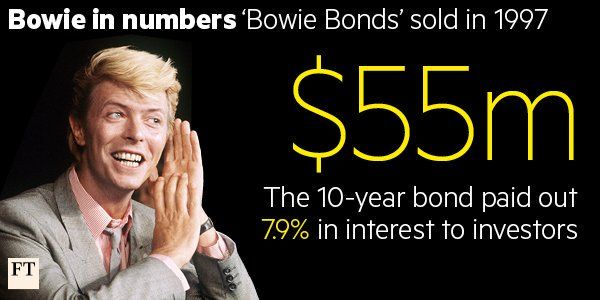
Encrypted financial laboratories believe that digital securities will be an important turning point in the blockchain and financial industry. For this area, once a leader or pioneer gives a clear business template or roadmap, there will be a large number of hesitant bystanders, such as investment institutions, financiers, issuers, and other third-party service organizations. . It is conceivable that if the future certification can innovate investment and financing models for real estate, art, music works and even more asset types, it will definitely open a new door for traditional finance, and will also be the free flow and fairness of global assets. Trading creates greater opportunities.
References: https://www.securitytokenacademy.com/info/global-capital-markets-and-security-tokens-with-david-weild-2189/#transcript
We will continue to update Blocking; if you have any questions or suggestions, please contact us!
Was this article helpful?
93 out of 132 found this helpful
Related articles
- Viewpoint | The Way to Success in Digital Money: Valuation Models and Network Effects in Chaos
- The US Congress blocks the truth and opportunity for Facebook to issue digital currency
- Eth2 progress: Eth2 test network is coming!
- Babbitt column | Last night, the central bank back pot 21 times, Xiao Zha rescue Libra hit the Chinese card
- The price of the currency has fallen sharply, the difficulty of mining has increased, and why is the bitcoin power not falling?
- Sharp interpretation of Zuckerberg’s testimony: avoiding heavy weight, not fundamentally answering why the approval of Facebook
- Why do I say that the encryption market is far from cool?






